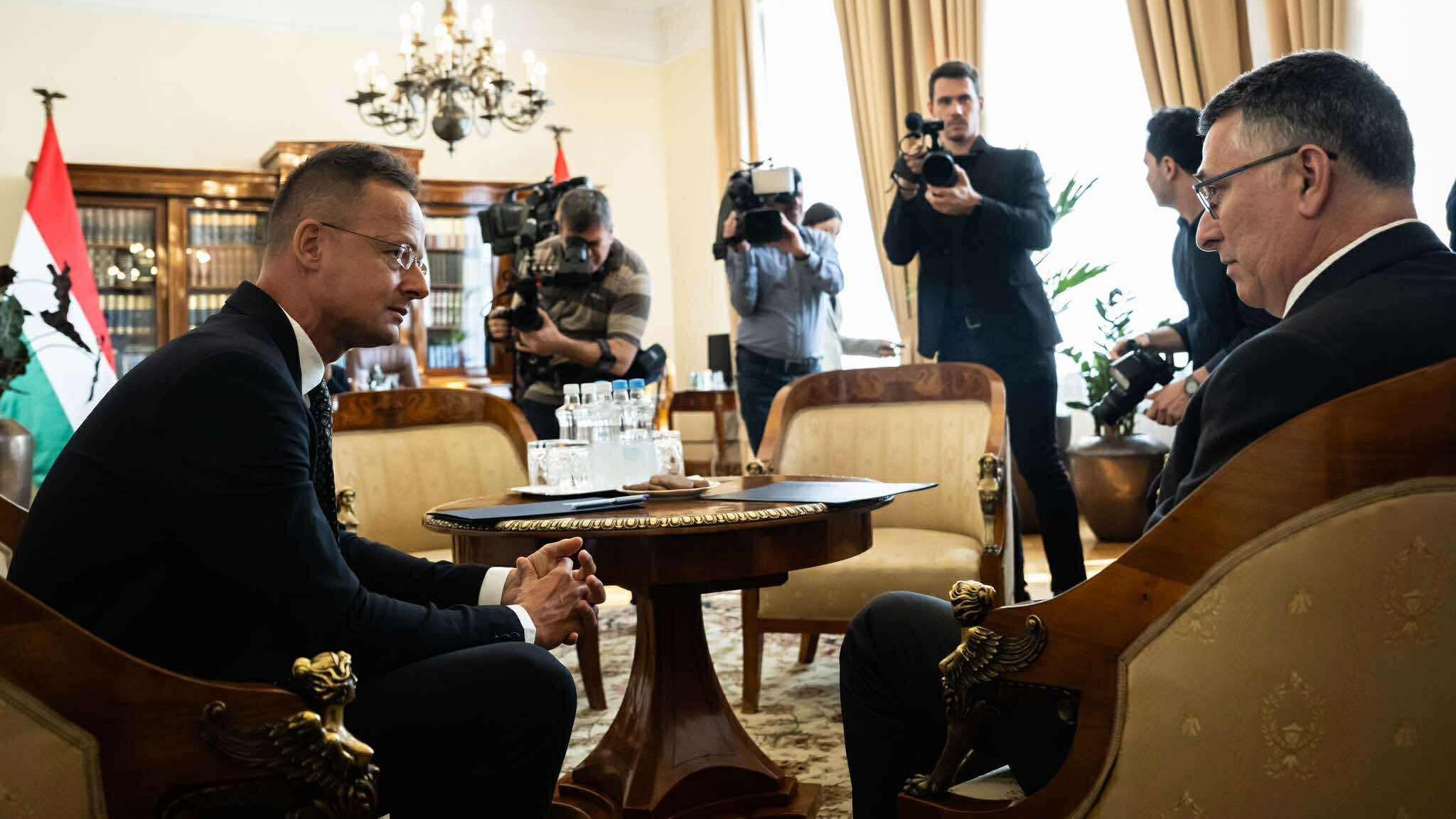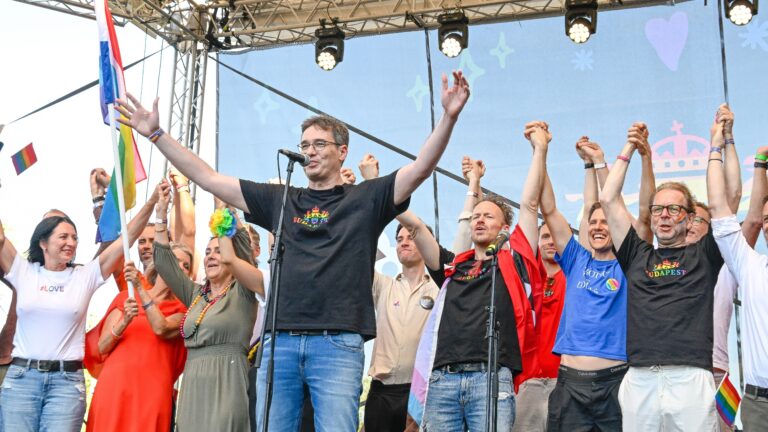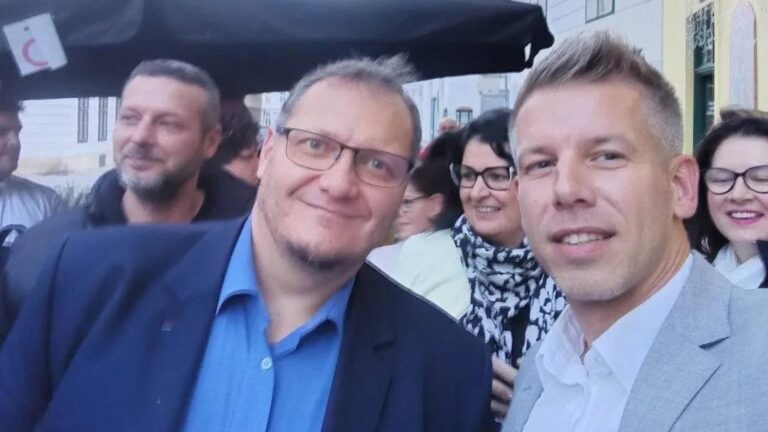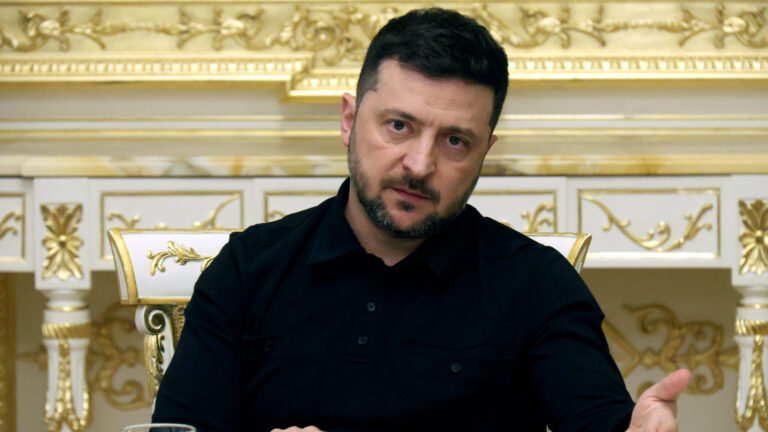Israel’s Foreign Minister Gideon Sa’ar visited Hungary on 8 September to meet with his counterpart Péter Szijjártó. During the joint press conference, the Israeli minister praised Hungary for its fight against terrorism and its commitment to the safety of the Jewish population in Hungary.
Hungary, Israel: Two Good Friends
The Israeli minister highlighted the ongoing fight against radical Islamism as a core issue of modern times and called on Europe and the international community to decide which side of this conflict they want to take a position on. At the joint press conference, he clearly stated that ‘we know Hungary is on our side,’ as there are two clear choices in this conflict according to Gideon Sa’ar: to fight against terrorism, as Israel does in Gaza against Hamas members, or to be on the side of the Jihadists.
The question could not be more relevant after the brutal terrorist attack that happened near Jerusalem on the morning of the Israeli minister’s visit to Hungary. ‘Two Palestinian terrorists murdered Jews on buses at the Ramot Junction in Jerusalem. So far, six Israelis have been killed. There are many, many injured, including a pregnant woman, we pray for them.’ The minister called the attention of European leaders to the real problem and danger.
Hungary has been well-known for its strong alignment with Israel since 2010 and has shown its commitment to the Middle Eastern country several times. Hungary has always voted against UN resolutions and EU policies sanctioning Israel. Recently, more and more European countries have been planning to declare a Palestinian state, but PM Viktor Orbán called the ‘two-state solution an illusion,’ indicating that his government will not recognize such a state.
Hungary Takes the Lead in Europe’s Fight Against Antisemitism
As antisemitism has intensified across Europe since 7 October, János Bóka, Minister for European Union Affairs and the Prime Minister's Commissioner for the Coordination of the Fight against Antisemitism, has emphasized the need to combat it more vigorously. Strengthening and promoting Jewish life, as well as ensuring the safety of Jewish communities, are essential elements of this effort. Rather than yielding to the rising tide of antisemitism in Europe, the minister believes it is important to demonstrate to Jewish communities that they are a valued part of Hungarian society.
Minister János Bóka is initiating a 5–7 point action plan and will launch two pilot projects in the coming six months. He has also set up an advisory body and wants to engage in ongoing dialogue with the Jewish community to fight more effectively against antisemitism. János Bóka also stressed that he respects freedom of expression, but there are limits to it if it is used to attack people because of their state of origin or religion. The minister also referred to the ban on the Irish band Kneecap as an example, stating that incitement to hatred takes place at the band's concerts, where Hezbollah and Hamas are celebrated.
Even in Hungary, where the government has taken serious actions to reduce the number of antisemitic incidents, this kind of abuse can occur, as in any country in the world. The cause of antisemitism is often a lack of knowledge and experience. In Hungary, there are many people living in rural areas who grow up without ever meeting Jews and who have no personal experience of them.
‘The European Union must also take action, as the fight against antisemitism is closely linked to the protection of other minorities and the broader struggle against racism’
At the same time, although it does not resemble the form it took in the last century, the resurgence of antisemitism is once again becoming a troubling trend across Europe. Today, Islamist groups and radical left-wing activists are among the primary sources of its spread. According to János Bóka, the situation is already serious and may deteriorate further; however, it is possible to confront this phenomenon, and action must be taken—because Judaism is an integral part of European culture.
The European Union must also take action, as the fight against antisemitism is closely linked to the protection of other minorities and the broader struggle against racism. Nonetheless, antisemitic incidents occur daily in many EU member states. Spain and Belgium are particularly problematic in this regard, while concerns also remain in the Netherlands. Furthermore, denying Israel's right to exist is also considered a form of antisemitism.
Related articles:







